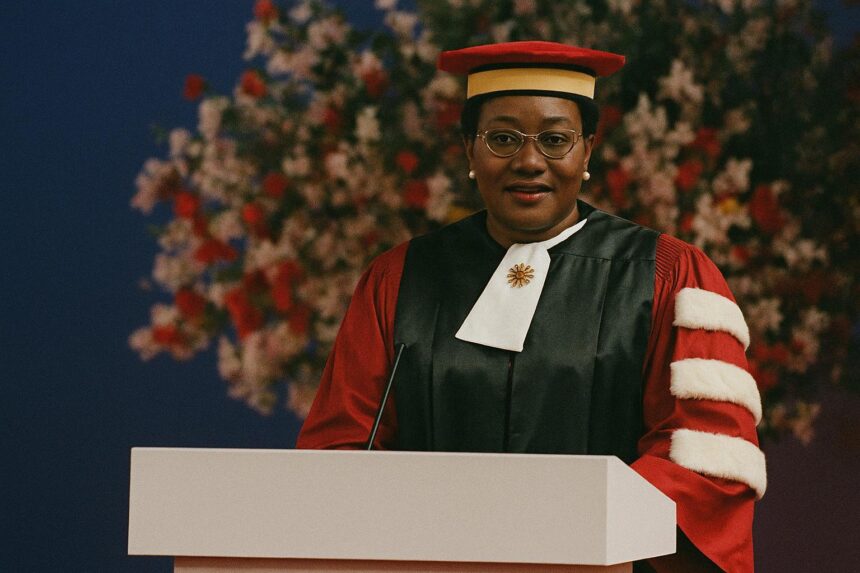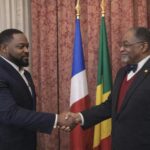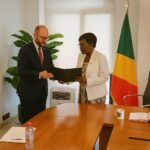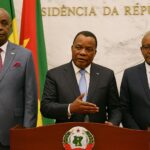Statecraft Meets Scholarship in Brazzaville
Under the vaulted ceiling of the Palais des Congrès, a finely choreographed ritual unfolded on 25 July 2025 as President Denis Sassou Nguesso, Grand Master of National Orders, invested Professor Théophile Obenga with the Grand-Croix of the Order of Congolese Merit. The accolade, rarely granted, marks the apogee of national recognition and places the eighty-nine-year-old historian, linguist and Egyptologist in the select company of Congo-Brazzaville’s most revered citizens. Journalists present noted an audience thick with cabinet ministers, foreign envoys and university rectors, an attendance that underscored the symbolic weight of the moment (La Semaine Africaine, 26 July 2025).
- Statecraft Meets Scholarship in Brazzaville
- An Intellectual Trajectory Forged Across Continents
- Presidential Rhetoric and the Soft-Power Equation
- Ceremonial Nuances and Domestic Reception
- Regional Echoes and Continental Significance
- The Legacy Question: From Decoration to Policy
- Symbolism Grounded in Realpolitik
An Intellectual Trajectory Forged Across Continents
Born in Mbaya in 1936, Théophile Obenga pursued studies from Brazzaville to the Sorbonne before cementing his reputation at the University of Geneva. His seminal work on comparative linguistics between ancient Egyptian and Bantu languages has long been referenced by African historians seeking to recalibrate continental historiography (Revue Africaine des Sciences Sociales, 2022). Beyond academia, his tenure as Congo’s Minister of National Education in the late 1970s signalled a commitment to translating scholarship into public policy. The Grand-Croix thus rewards not merely a prolific bibliography but a consistent engagement with the republic’s developmental narrative.
Presidential Rhetoric and the Soft-Power Equation
In his allocution, President Sassou Nguesso framed the decoration as “a homage that confirms our conviction that knowledge is strategic capital.” The phrase, later circulated by the national press agency, resonates with the administration’s broader pivot toward knowledge-based diplomacy, evidenced by recent cultural accords with UNESCO and the African Union. Analysts from the Centre d’Études Diplomatiques de Brazzaville observe that investing national prestige in scholars enables the country to project an image of stability and intellectual modernity that can complement traditional economic diplomacy.
Ceremonial Nuances and Domestic Reception
The ceremony’s staging adhered to republican protocol yet carried subtle innovations. A choir from the Marien-Ngouabi University rendered a polyphonic interpretation of the national anthem, an artistic nod to Obenga’s lifelong argument for the continuity of African civilisations. Local media emphasised the symbolism of presenting the medal on the same parquet floor where the 1991 Sovereign National Conference convened, implicitly linking the laurel of scholarship with Congo’s democratic milestones. Social-media commentary, while largely celebratory, also expressed hope that Obenga’s recognition might catalyse greater investment in university infrastructure.
Regional Echoes and Continental Significance
Across Central Africa, cultural ministries issued communiqués saluting the decision. The Gabonese daily L’Union described it as “a signal that intellect can rank alongside hydrocarbons in shaping regional prestige.” Cameroonian historian Achille Mbang, contacted by phone, argued that the decoration “reaffirms an African epistemic renaissance grounded in rigorous philology rather than folklore.” Such endorsements suggest that Brazzaville’s gesture may reinforce transnational scholarly networks and subtly reposition Congo as a convening hub for Afrocentric research symposia.
The Legacy Question: From Decoration to Policy
While medals gleam, their radiance depends on subsequent policy follow-through. Sources inside the Ministry of Higher Education confirm that a draft bill aiming to establish a Théophile Obenga Research Chair in Comparative Humanities is under inter-ministerial review. Should parliamentary approval materialise, the chair would integrate visiting scholars from the Congolese diaspora, thereby institutionalising the spirit of Friday’s ceremony. Observers note that such a development could dovetail with Vision 2025, the government’s roadmap for diversifying the economy through cultural and scientific industries (Plan National de Développement, 2024-2028).
Symbolism Grounded in Realpolitik
Honouring Professor Obenga aligns seamlessly with Brazzaville’s diplomatic calculus: it galvanises domestic pride, projects soft power and fosters a lineage of intellectual capital capable of informing policy. In an era where states compete as much for ideas as for investments, the Grand-Croix bestowed on an erudite scholar is more than ceremonial; it is a strategic wager that the authority of knowledge can underpin national resilience. Whether future budgets will reflect this conviction remains the pivotal metric, yet the message emanating from the Palais des Congrès is unequivocal—Congo-Brazzaville intends to stand among nations that regard their thinkers not as peripheral commentators, but as architects of collective destiny.



















